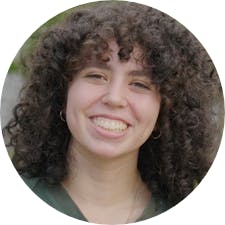Middlebury has announced a $25 million grant from an anonymous donor to create the Kathryn Wasserman Davis Collaborative in Conflict Transformation, a concept designed to reframe the way in which peacebuilding initiatives are discussed and pursued. The money will be doled out over the next seven years between five programs: Middlebury’s undergraduate college, the Bread Loaf School of English, the Middlebury Institute of International Studies, international programming and experiential learning.
This grant is the “largest programmatic support that Middlebury has ever received” according to a March 16 email from the Office of the President.
Professor of Psychology Michelle McCauley was appointed executive director of the grant. McCauley will lead the grant’s vision of enacting five pillars that were outlined to help students across all of Middlebury’s sectors to better understand conflict.
“The goal is to recognize that we can look at conflict negatively always and turn away or we can stay engaged,” McCauley said.
The grant will address global conflict as well as rather focus on interpersonal relationships and intercultural competency. The goal of the grant is to enable students to have multiple opportunities to learn how to engage conflict in a productive manner, for example, to lead discussions on antiracism and environmental work. They should expect to become more comfortable talking despite differences in opinion.
Center for Community Engagement (CCE) Director Ashley Laux is in charge of experiential learning for students, a process where students learn by doing, and hopes to get the CCE involved as soon as possible.
“It really resonates with me as a part of how we view the Center for Community Engagement: helping to provide students with experiential opportunities and diverse communities,” Laux said.
The CCE currently offers curricular and co-curricular engagements and will launch multiple new programs and bolster existing ones this summer with the grant money. One of the new experiences is History in Translation, a fully funded twelve-day trip for undergraduate students from the International Christian University in Tokyo to explore the impacts of Executive Order 9066 — President Franklin D. Roosevelt’s executive order to incarcerate over 100,000 civilians of Japanese descent in 1942. The students will visit Manzanar Internment Camp and conduct service work to understand the damage of the order.
McCauley emphasized that for this experiential learning, Middlebury’s job is to prepare students to address and discuss these conflicts and to provide a place to host discussions about conflicts afterwards.
These practices link to the grant’s goals and objectives of making Middlebury as a community more comfortable and better prepared to have discussions around conflict.
“We will just have a much deeper understanding of conflict… for really making a positive difference with it, and that doesn't leave when the grant leaves,” McCauley said.
Although the grant is only set to be implemented over the next seven years, the hope is that these practices will remain in the community much longer and will provide students with the necessary skills for the future workplace and world.

Orly Berke '25 (she/her) is a News Editor.
This is Orly’s second year as news editor with previous experience as a staff writer.
She is a joint political science - art history major. Outside of academics she is a member of the College Democrats as well as Darkroom club. She enjoys watching movies, cooking, and spending time with friends, oftentimes in Proctor, her favorite dining hall.



